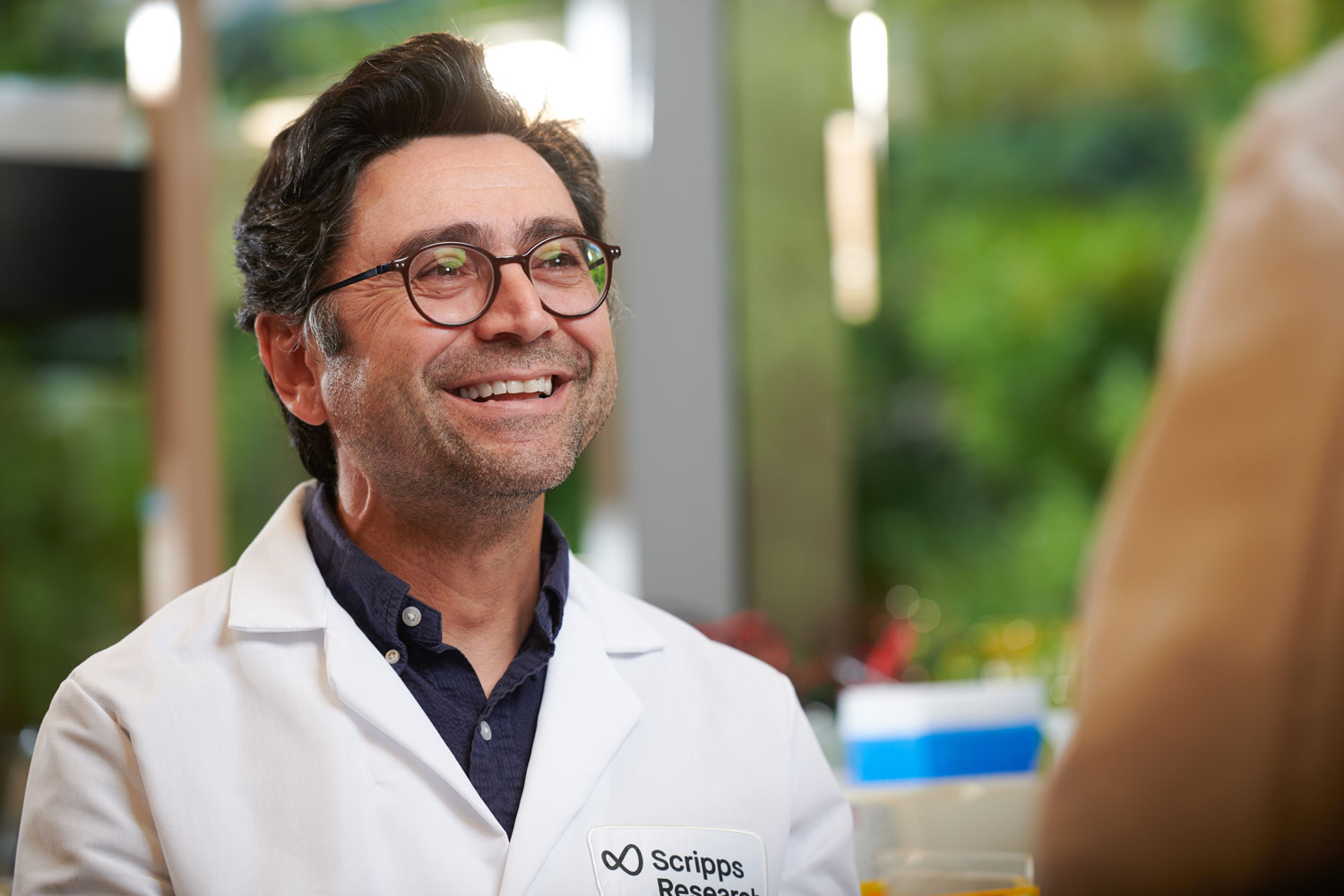Double Win: UCSF Alum Ardem Patapoutian Shares Nobel with UCSF Professor David Julius

2021 Nobel Laureate Ardem Patapoutian, PhD. Photo by Scripps Research
This year’s Nobel Prize in Physiology or Medicine carries two UC San Francisco-affiliated names with it. Announced on Oct. 4, the distinguished award is shared between longtime UCSF faculty member David Julius, PhD, and a memorable alum, Ardem Patapoutian, PhD, who did his postdoctoral research from 1996-2000 in the lab of Louis Reichardt, PhD. The prize was awarded for their discoveries of receptors for temperature and pressure.
In the early 2000s, after Julius had characterized the heat-sensing capsaicin receptor, he and Patapoutian were separately zeroing in on the body’s mechanism for sensing cold. While they used different approaches, they both employed menthol in the search, which led each of them to identify the same receptor, called TRPM8. The two published their findings only weeks apart, said Patapoutian’s postdoctoral mentor, Reichardt, now a UCSF professor emeritus.
The work and seminars that Ardem was exposed to at UCSF undoubtedly made him aware of the interesting aspects of sensory perception and the limits of our knowledge about it.
Patapoutian, now a research professor at The Scripps Research Institute, brought striking imagination to his work from the start, said Reichardt, describing some early research Patapoutian did as a postdoc. “It was a very creative paper and got the attention of Harold Varmus, then at the NIH, who called him to find out more,” Reichardt recalled. (Varmus had by then garnered his own Nobel while a professor of microbiology and immunology at UCSF.) “That gave me an early inkling of Ardem’s potential.”
That potential was fed by the community of neuroscientists Patapoutian found himself in, starting with Reichardt’s work on mutant mice that lacked some neurons responsible for perception of several senses, along with researchers in other labs – including Julius’s – focused on understanding sensory perception and processing. “The work and seminars that Ardem was exposed to at UCSF undoubtedly made him aware of the interesting aspects of sensory perception and the limits of our knowledge about it,” said Reichardt.
Reichardt also noted that the young researcher he mentored had faced a host of earlier challenges. Raised in an Armenian family living in West Beirut, Patapoutian grew up amidst Lebanon’s civil war. He studied chemistry for a year at the American University of Beirut until an episode of being detained by armed militants prompted his family to flee to Los Angeles, joining relatives already there.
In recent years, Papapoutian’s ingenuity has been recognized with the sort of prestigious recognitions that often pave the path to a Nobel: memberships in the National Academy of Science and the American Academy of Arts and Sciences, as well as the Kavli Prize for Neuroscience.
Though it all, he’s remained a “remarkably nice guy,” said Reichardt, who has kept in touch with his former postdoc. “I have felt for many years that he deserved these very prestigious honors, and it’s just a delight to see this Nobel going to someone so worthy of it.”